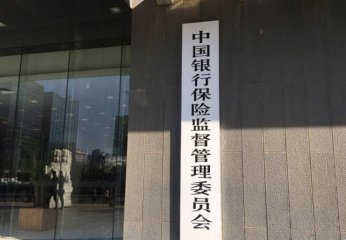China announced a decision on Thursday to allow insurance asset managers to set up special products to invest in listed companies, as part of the measures taken by the authorities to mitigate the liquidity risks of listed companies which have borrowed money using shares as collateral.
In a notice, the China Banking and Insurance Regulatory Commission permitted insurance asset management companies to set up special products, and the investment targets of these products include shares of listed companies, publicly issued bonds of listed companies and their shareholders, and non-publicly issued exchangeable bonds of the shareholders of listed companies.
The major investors in the special products will be insurance companies, institutional investors such as the National Council for Social Security Fund, and the asset management products of financial institutions, according to the banking and insurance regulator.
For insurance companies, the balance of their investment in these special products is not included as part of their equity assets when the regulator calculates the proportion of their investment, and therefore is not restricted to the related regulatory requirement.
Asset management professionals consider this an incentive for insurance companies to increase their investment in listed companies.
According to the existing rules, the balance of an insurance company's overall investment in equity assets should not exceed 30 percent of its total assets at the end of the previous quarter; and the balance of its key equity investment should not exceed its net assets at the end of the previous quarter.
People familiar with the matter said many insurance companies are actively preparing for the launch of special products.
China Life Asset Management Co Ltd has already started conducting research on establishing this category of special products to take part in resolving the risks of listed companies whose loans are backed by equity collateral, Wang Junhui, chief investment officer of China Life Insurance (Group) Co and president of China Life Asset Management Co, said in an article published in the Beijing-based Securities Times on Thursday.
"Facing the current market situation, our company will uphold the concept of value investment, grasp the features of growth of the new economy, and take strategic emerging industries and high-quality private companies into the scope of our core assets.
"We'll hold our core assets for long through different channels including long-term open market equity investments, strategic investments and preferred shares, in the aim of effectively reducing the impact of equity investment fluctuations and achieving long-term value appreciation of the investments," Wang said.
Researchers said insurance asset managers are looking for opportunities to invest in high-quality listed companies and prefer companies that either take the lead in their own sector or have potential for value growth.
Data from the banking and insurance regulator show that the balance of insurance funds reached 15.87 trillion yuan ($2.28 trillion) as of the end of September. Among the total, 1.3 trillion yuan were invested in stocks and 0.89 trillion yuan were invested in funds.
In a notice, the China Banking and Insurance Regulatory Commission permitted insurance asset management companies to set up special products, and the investment targets of these products include shares of listed companies, publicly issued bonds of listed companies and their shareholders, and non-publicly issued exchangeable bonds of the shareholders of listed companies.
The major investors in the special products will be insurance companies, institutional investors such as the National Council for Social Security Fund, and the asset management products of financial institutions, according to the banking and insurance regulator.
For insurance companies, the balance of their investment in these special products is not included as part of their equity assets when the regulator calculates the proportion of their investment, and therefore is not restricted to the related regulatory requirement.
Asset management professionals consider this an incentive for insurance companies to increase their investment in listed companies.
According to the existing rules, the balance of an insurance company's overall investment in equity assets should not exceed 30 percent of its total assets at the end of the previous quarter; and the balance of its key equity investment should not exceed its net assets at the end of the previous quarter.
People familiar with the matter said many insurance companies are actively preparing for the launch of special products.
China Life Asset Management Co Ltd has already started conducting research on establishing this category of special products to take part in resolving the risks of listed companies whose loans are backed by equity collateral, Wang Junhui, chief investment officer of China Life Insurance (Group) Co and president of China Life Asset Management Co, said in an article published in the Beijing-based Securities Times on Thursday.
"Facing the current market situation, our company will uphold the concept of value investment, grasp the features of growth of the new economy, and take strategic emerging industries and high-quality private companies into the scope of our core assets.
"We'll hold our core assets for long through different channels including long-term open market equity investments, strategic investments and preferred shares, in the aim of effectively reducing the impact of equity investment fluctuations and achieving long-term value appreciation of the investments," Wang said.
Researchers said insurance asset managers are looking for opportunities to invest in high-quality listed companies and prefer companies that either take the lead in their own sector or have potential for value growth.
Data from the banking and insurance regulator show that the balance of insurance funds reached 15.87 trillion yuan ($2.28 trillion) as of the end of September. Among the total, 1.3 trillion yuan were invested in stocks and 0.89 trillion yuan were invested in funds.



















Latest comments